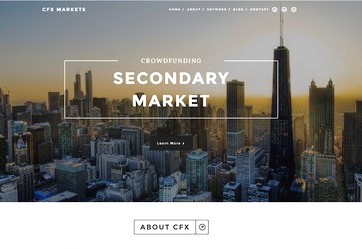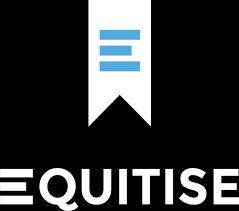(MarketsMuse courtesy of Chicago Tribune)-The notion of a secondary trading market for crowdfund investments is not new–a topic that MarketsMuse has profiled more than once during past several months, but those efforts have been more noticeable outside the US. That’s now changing. Chicago-based CFX Markets launched a platform Tuesday allowing crowdfunding investors to sell their shares online. The new platform gives users a way to resell their shares on a secondary market if they want to get out of the investment in a pinch.The new site will initially focus on real estate crowdfunding platforms.
“Our goal in creating a secondary market for crowdfunding investments is basically to make it as easy to buy somebody’s private investments as it is to buy and sell shares of Microsoft,” said Juan Hernandez, CFX Markets managing director. Hernandez is a former algo trader specializing in FX and Equity markets. The company has gained increasing notoriety since its April 2015 soft launch, when it introduced its open source application known as CFX, Crowdfunding Crossmarkets.
“There’s this tremendous number of new platforms out there that have high-quality investment opportunities that people can now participate in, but what happens after you’ve invested in one of these properties and it’s one to two years later and you need to cash out on your position for whatever reason?”
CFX Markets is an affiliate of Chicago-based real estate crowdfunding platform PeerRealty, which lets investors buy stakes of real estate offerings.
The new market will allow members of PeerRealty and Chicago-based platforms American Homeowner Preservation, CrowdFranchise and PropertyStake to resell their shares. It will announce other partners this year, Hernandez said.
Investors on member platforms can log into CFX and sync accounts so their shares show up on the secondary market. Investors can list the assets they want to sell and pick a price for them; then buyers can review the assets and performance, match a bid or make an offer. Buyers don’t need to be existing members of affiliated platforms.
Jorge Newbery, founder and CEO of American Homeowner Preservation, said he expects the option of selling shares on the secondary market will draw more individuals to invest on his platform and encourage existing investors to put in more money.
Kendall Almerico, a Washington D.C.-based lawyer focused on crowdfunding, said buyers aren’t likely to immediately flock to what is still new territory for many investors.“We’re maybe a year, a couple years away before this becomes more commonplace,” he said.
But Almerico believes secondary markets will become an integral part of the new crowdfunding economy. “This is kind of that missing piece of the puzzle,” for equity crowdfunding, he said. “That liquidity is what makes this potentially such a great, attractive offer to get into: They can actually sell it if they need to.”
For the full story from the Chicago Tribune, please click here



